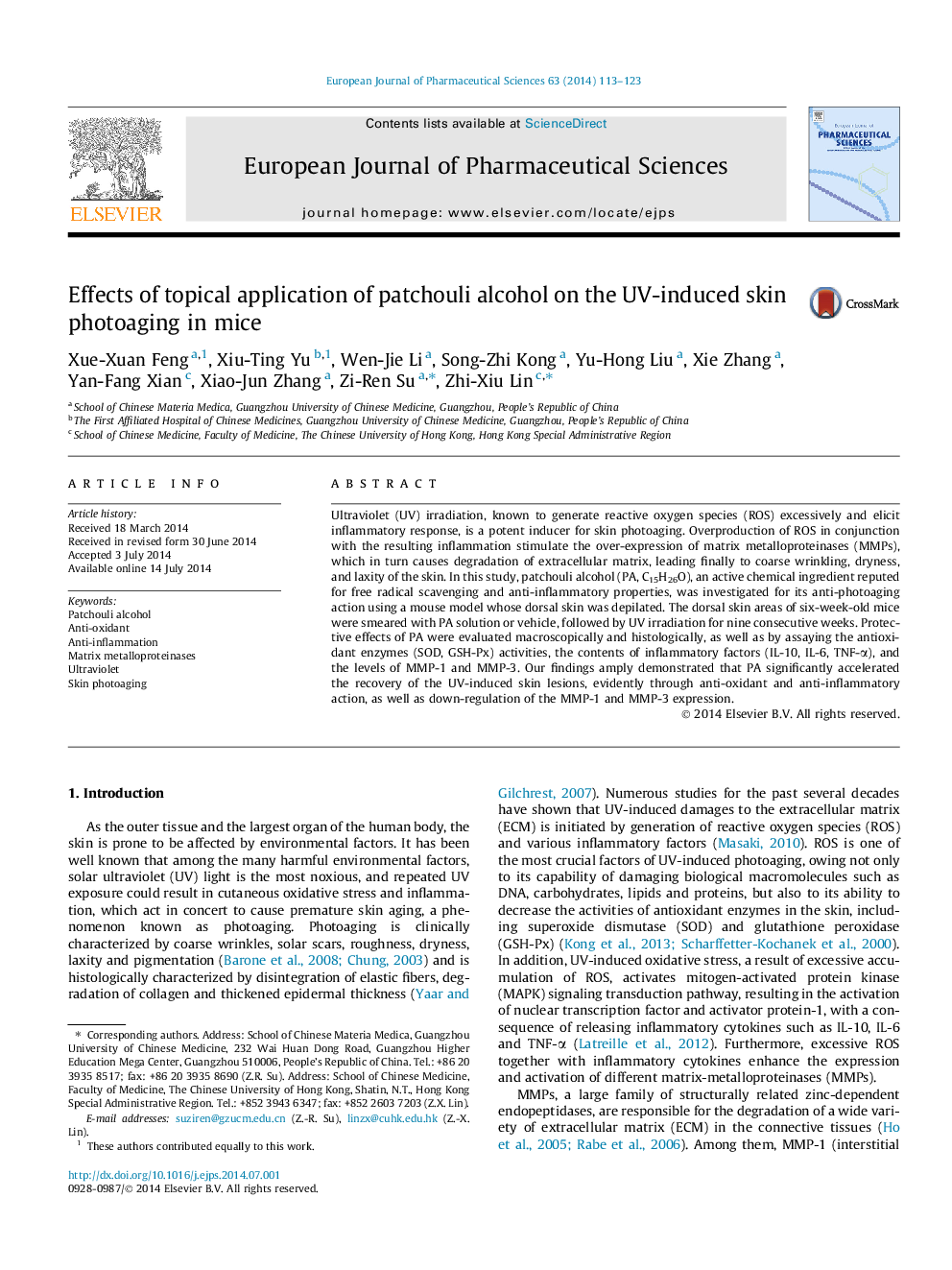| Article ID | Journal | Published Year | Pages | File Type |
|---|---|---|---|---|
| 2480490 | European Journal of Pharmaceutical Sciences | 2014 | 11 Pages |
Ultraviolet (UV) irradiation, known to generate reactive oxygen species (ROS) excessively and elicit inflammatory response, is a potent inducer for skin photoaging. Overproduction of ROS in conjunction with the resulting inflammation stimulate the over-expression of matrix metalloproteinases (MMPs), which in turn causes degradation of extracellular matrix, leading finally to coarse wrinkling, dryness, and laxity of the skin. In this study, patchouli alcohol (PA, C15H26O), an active chemical ingredient reputed for free radical scavenging and anti-inflammatory properties, was investigated for its anti-photoaging action using a mouse model whose dorsal skin was depilated. The dorsal skin areas of six-week-old mice were smeared with PA solution or vehicle, followed by UV irradiation for nine consecutive weeks. Protective effects of PA were evaluated macroscopically and histologically, as well as by assaying the antioxidant enzymes (SOD, GSH-Px) activities, the contents of inflammatory factors (IL-10, IL-6, TNF-α), and the levels of MMP-1 and MMP-3. Our findings amply demonstrated that PA significantly accelerated the recovery of the UV-induced skin lesions, evidently through anti-oxidant and anti-inflammatory action, as well as down-regulation of the MMP-1 and MMP-3 expression.
Graphical abstractFigure optionsDownload full-size imageDownload high-quality image (95 K)Download as PowerPoint slide
